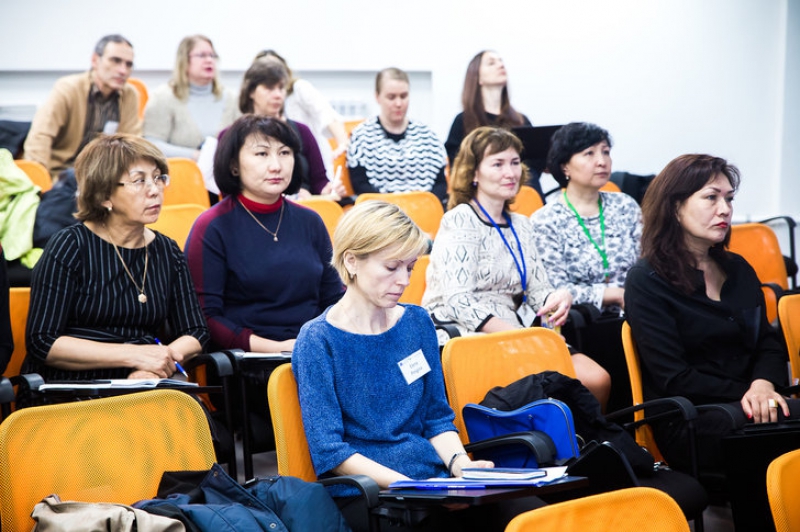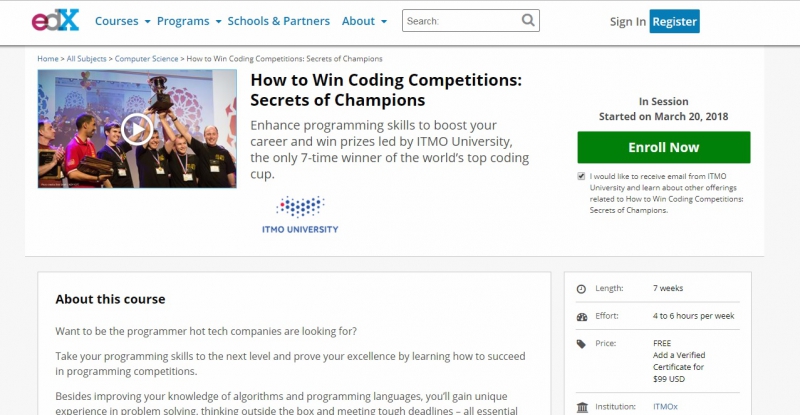Why are online courses so popular?
MOOCs have been developing en masse for the last 6 years; since 2012, more than 800 universities all around the world have launched about 9,500 online courses on various educational platforms. An estimated 81 million people have already taken these courses. Every university with at least one MOOC is ranked among the world’s top universities, noted Andrey Lyamin.
What are the benefits of online learning for both students and universities? The main advantage of online learning is that it allows for a more personal approach to education. How do they work? First, a student picks certain online courses depending on their field of study and the skills they want to acquire. Universities, in turn, analyze their choices and create new online courses that cater to the students’ needs. The system, therefore, works as a closed loop.
What are the other benefits for universities? By launching online courses, universities can gain international recognition and attract international students. For example, ITMO University has launched 35 massive open online courses, which have been taken by 250 thousand people so far. Half of them didn’t know a thing about the university prior to that.

As for a more personal approach to teaching, it is also beneficial for universities in many ways, since it allows for a higher quality of education among students and thus better positions in international rankings. Imagine a lecturer giving a lecture to 100 students. The process would be much more efficient if students could learn online on their own and meet with a lecturer once a week to ask questions and discuss specific issues in groups.
“There has been a lot of research on how to increase the efficiency of online courses, and the data shows that mixed learning, which combines classroom studies with online learning, is the most efficient,” commented Andrey Lyamin.
It is also necessary to develop mechanisms of recognizing the results of e-learning, so that a student can now take an online course and get credits for it.

For students, online courses provide an opportunity to develop such soft skills as time management and self-management. Some courses involve teamwork, meaning that students can learn to communicate with people of different social and cultural backgrounds. It’s like going on an exchange program without ever leaving the house.
How to create a MOOC: ITMO's experience
There are three types of MOOCs at ITMO University: university-level, national, and international. The first group is aimed at ITMO University students. Courses from the second group are available on the Open Education Platform and aimed at students from other Russian universities. Before launching such courses, the university has to find out if they are relevant and if students from other universities would take them.
The third group is intended for international students. That’s how they can learn about ITMO University. These courses are developed in some particular fields, e.g. IT, or photonics. For example, the course How to Win Coding Competitions: Secrets of Champions has been recognized as one of 2017’s most successful ones on the edX platform. This course was developed by ITMO teaching staff who train world champions in programming; ITMO University’s team is the only seven-time ACM ICPC world champion.

What makes a good online course?
- A course should consist of several lectures, about 50 minutes long each, divided into blocks lasting up to 5 minutes each.
- The duration of a course is four weeks (4-5 academic hours per week). The reason is that people can easily schedule their time for a month, but struggle with planning for longer periods.
- The students’ attention levels must be tested after each short block; there must also be practical assignments after each lecture, and a laboratory assignment or two at the end of the course.
- It is up to a course’s author to determine how many assignments should be completed in order to successfully complete the course.
- There are several ways to verify a student's identity during course exams. E.g. one may use a proctoring service that allows the educators to monitor their students during the exams.
- If possible, involve employers in the development process. It can be beneficial for both students and employers.

The development process can be divided into seven key stages: the development of the concept, preparing basic materials, graphic design, making a promo clip, uploading the course to the platform, and testing.
ITMO University plans to have as many as 50 courses available online by the end of 2018.





